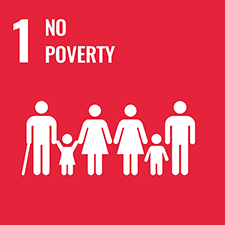
Assoc.Prof.Dr Nguyen Khac Quoc Bao: "Difficult to solve the 2021 GDP growth equation"
24 Mar, 2021
(KTSG Online) - Statistics show that just over the first two months of 2021, more than 33,000 businesses left the market, accounting for more than one-third of the figure in the whole year 2020. The stamina and flexibility have helped many businesses that have survived and kept an impressive GDP growth rate in the last year have become unknown due to the emergence of new variants of disease-causing virus COVID-19.
KTSG Online had an exchange with Assoc.Prof.Dr. Nguyen Khac Quoc Bao, University of Economics Ho Chi Minh City, about the story of GDP growth in 2021.
.jpg)
Assoc.Prof.Dr. Nguyen Khac Quoc Bao, UEH University.
KTSG Online: In your opinion, how difficult is the "variable" new variants of Covid-19 that appeared in Vietnam before the Lunar New Year, making the "equation" of GDP growth this year difficult to solve?
- Dr. Nguyen Khac Quoc Bao: Many optimistic growth scenarios were launched earlier this year in the context of favorable macro conditions, COVID-19 was pushed back with news about vaccines being imported. In terms of imports and vaccinations, the pent-up of demand due to limited economic activity in 2020 will give the economy a boost in 2021. However, when the Covid-19 pandemic broke out again, the new variants are more dangerous in the days close to the Lunar New Year, causing the economy to be pushed into a sudden turn, the previous optimistic forecast is no longer feasible.
Instead, the "equation" for GDP growth this year will depend on key variables such as the spread of Covid-19 and the effectiveness of vaccines, the stamina of businesses, and disease development around the world and the behavior of people and businesses towards the uncertainty of pandemics.
They are called "variables" because they are not included in the calculations with the same assumptions as before. Four such variables make the GDP growth equation this year much more challenging to solve.
But amid uncertainty last year, GDP has still grown impressively. Can we continue to hope for the flexibility of the business sector?
- In 2020, Vietnam will record many positive points in both the anti-epidemic policy, support for people and businesses, economic activities are slowing down but not broken or stagnant. But to be clear, it must be admitted that the key to our impressive growth last year is the endurance of businesses.
Private sector businesses are very flexible. Almost all of them have plans to deal with Covid-19 with many different scenarios at an early stage, which means they know what to do for themselves, prepare the best scenario for themselves, even calculate more for working life, helping the system not to be broken, but also ready to restart at any time.
But that was last year! Whether they can manage to cope with it anymore or not is a big question with no specific answer. The general economic picture is getting more and more difficult because international trade is no longer smooth and input costs are more expensive. This is a huge challenge for the business sector.
.png)
GDP growth last year started to recover from this June, facing the problem of rising costs. Source: HSBC.
Specifically, the significant growth motivation comes from the group of FDI businesses. Does this "obscure" the fatigue caused by Covid-19 of domestic companies, individual business households and Vietnamese people?
In fact, it was not until Covid-19 broke out that we could see a large gap between domestic businesses and FDI businesses, this issue has been mentioned by experts for a long time. Only thing, the outbreak of Covid-19 further highlighted the inferiority and weaknesses of the domestic economic sector. But on the positive side, this is also a pressure that is also a driving force for us to take advantage of the opportunity to narrow this gap, which has not been able to date for many objective and subjective reasons.
In fact, the wave of foreign direct investment has created a significant additional resource for the domestic economic sector and still plays the same role until now. If technology companies do not bring production lines, car companies do not open factories in Vietnam, students of engineering sectors will hardly have the opportunity to access modern production technologies. It is a prime example of the positive and pervasive factors of the FDI sector.
The Vietnamese government today is also calling for a change in the model of economic growth based on science, technology and innovation, and Covid 19 is creating an opportunity for this change. The human factor plays a pivotal role in increasing the degree of innovation for technology industries. We can believe that, with a new generation of workers, directly trained and operating in technological processes at FDI businesses, the spillover effect from the foreign economic sector will be more significant.
The international picture today also changes significantly when almost every country realizes that it is necessary to accelerate the process of market diversification, avoiding "putting eggs in one basket". Vietnam needs to take advantage of this unprecedented great opportunity to participate more deeply in global capital flows and value chains.
.png)
Exports at the beginning of the year still surged 23% year-on-year thanks to machinery and electronic equipment. Source: HSBC.
So domestic businesses will need more specific support policies than last year?
To be honest, Covid-19 has helped us to further assert the role of the private sector. It is the private businesses that help to "absorb" well the COVID-19's shock and, furthermore, to help the economy endure. Looking at state-owned conglomerates who always rely on the budget "udder", private businesses deserve a lot of support.
But the best support is not just financial aid packages, which are merely painkillers. In the long term, businesses need a "tonic" to increase resistance and help businesses grow more robust. That is the story of institutions.
This has also been mentioned a lot in seminars, conferences and forums, but "actions speak louder than words". Businesses really need to be treated as sponsors of the budget, not the one who is troubled even by the story of paying taxes.
Many are optimistic that with vaccines, everything will return to normal, and expect the June timeline. What is your view on this matter?
We often rely on vaccines most of the time, but I think at the moment, vaccines are just a "float" for people to cling boundlessly and indefinitely. When Covid-19 created other variants, the stronger one was more difficult to handle, the human race was forced to find a new vaccine—saying so to realize a thing that we are always running after the pandemic.
Therefore, people and businesses need to deal with the fact that they have to get used to making decisions in the context of limited information; that is, they can change continuously. For example, in the last Lunar New Year, it was the Covid-19 epidemic that decided the people's Tet holiday plan, not the State's Tet holiday schedule and each individual's plan.
Also never say: "Let's start when the pandemic has over", but to understand that the pandemic never ceases, that is to bear in mind from now on that we will live with the pandemic. If the behavior of people and businesses spread in this direction, with more supportive mechanisms and policies, everything will be better. This is also an important variable in this year's growth equation.
So, in your opinion, a scenario of how much GDP growth is feasible and appropriate?
The economy took the first 6 months of the year to operate in moderation; the remaining 6 months had to operate twice as fast and powerful, depending on the various variables mentioned above. But we should also know that a specific figure of growth rate in the context of too much uncertainty does not make much sense.
The people only care about practical issues in life such as rising prices, social distancing anywhere or not, where to invest when the interest rates are low, the government's promises to build. building bridges, roads, ... rather than any number that easily causes hallucinations and creates a vagueness about the prospects of the economy.
Instead, more intangible factors in the pandemic, such as solidarity, endurance, and socioeconomic improvement through specific images, should be more communicated to create a a positive attitude for the whole society, which leads to a more optimistic overall growth scenario.
Thank you Sir!
Source: Saigon Economic Online Newspaper.












